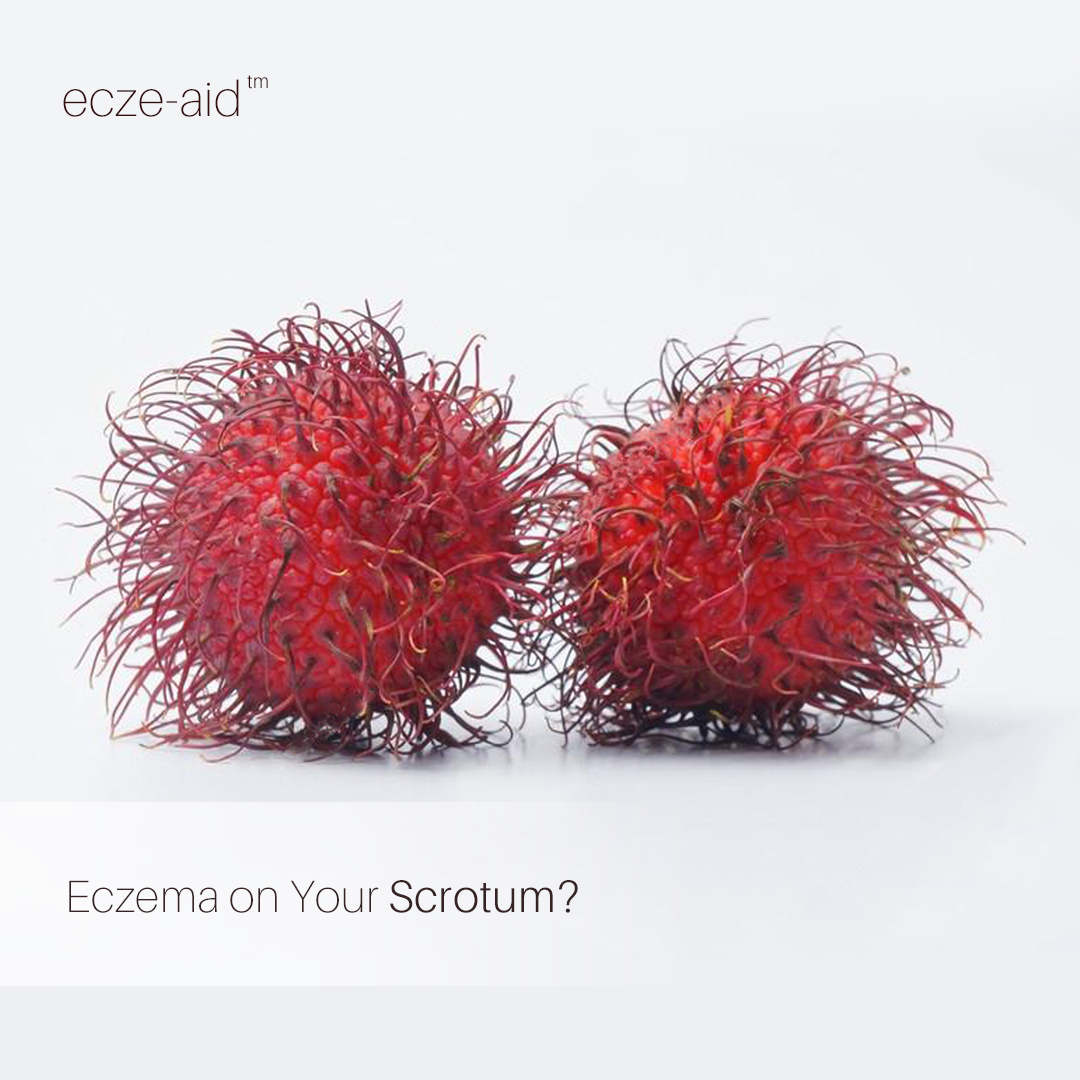Scrotal Eczema [also known as Scrotal Dermatitis] is a form of eczema that affects the scrotum [the bag of skin containing the testicles]. Some of the triggers include psychological stress, constant exposure to heat and humidity, exposure to irritants, reaction to over-the-counter medications, skin irritation caused by condoms, genetics, and lacking in some specific nutrients, particularly zinc and riboflavin.
In mild cases, the affected skin will be red, itchy, dry, and scaly, while bleeding, crusting, and weeping of sores can occur in more severe cases. Sometimes Scrotal Eczema can be mistaken for other skin conditions, including fungal [yeast] infections, and hence, anyone experiencing similar symptoms should consult a skin specialist to get an accurate diagnosis.
4 Stages of Scrotal Eczema:
- Mild Stage:
- An acute form of scrotal eczema
- Skin looks reddened and irritated
- Visible difference in the skin
- The itch most likely comes with a bit of a ting
- May last between a few days and a few weeks
- It might subside on its own [however, applying moisturizer will be helpful]
- Severe Stage:
- Characterized by the severity and the longevity of the scrotal eczema
- Peeling of skin on the testicles
- It is a chronic stage [the condition continues after a number of weeks]
- Affected skin will become bright red and scaly
- Burning and itching sensation will be intense than a mild case
- Wet Stage:
- Affected area becomes soft and moist
- It is a severe form of scrotal eczema
- Bad odor from affected area
- Painful sores around the affected skin
- Blood vessels that is jutted out in a spider vein pattern
- Such condition is most likely spread onto the inner thighs
- Oozing of fluids from the affected areas
- Swollen Stage:
- The condition has become extremely severe [advisable to seek consultation of dermatologist]
- Scrotum appear to be swollen with fluid
- Oozing of pus from the open wounds
- Comes along with ulcers that releases bad odor
- There is a risk of gangrene [death of soft tissue and skin in the body due to lack of oxygen]

